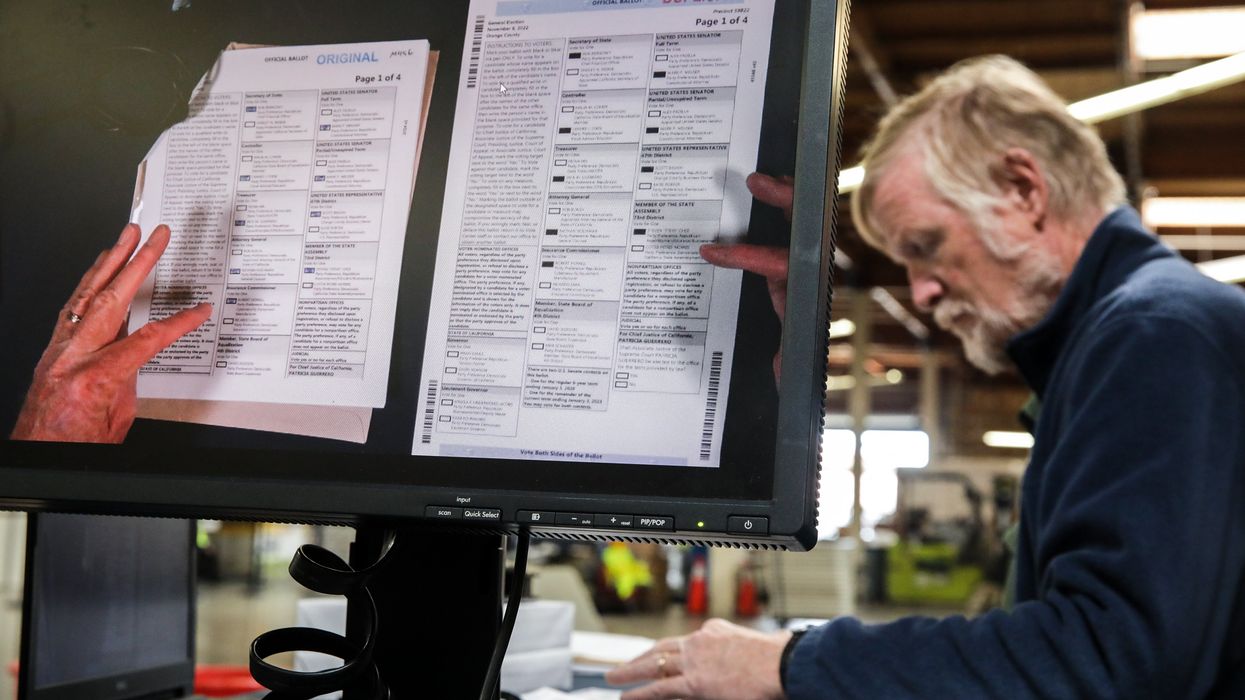Rosenfeld is the editor and chief correspondent of Voting Booth, a project of the Independent Media Institute.
In 2000, when Democratic and Republican party lawyers fought over recounting Florida’s presidential votes, Connecticut Sen. Joseph Lieberman, the Democratic vice presidential nominee, declared that mail ballots from overseas military voters should be given the “ benefit of the doubt ” and counted, even if some arrived after Florida’s deadline.
At the time, some Democrats cringed because military voters often leaned Republican. While these votes were not decisive in the election’s outcome — the Supreme Court halted Florida’s recount, elevating Republican George W. Bush to the presidency — Lieberman’s patriotic stance is a striking contrast with today’s Donald Trump supporters.
In Pennsylvania, Trump activists and five Republican members of Congress have separately filed lawsuits to disqualify ballots from overseas Americans, including military voters. In North Carolina and Michigan, the Republican National Committee and the state GOP filed similar suits to block the children of military families and civilians living abroad from voting.
“Military voters and their family members … must have valid IDs that can and must be matched to data in government databases to verify identity and eligibility,” the Pennsylvania activists' suit declares. “These overseas ‘covered voters’ may never have resided anywhere in the United States, let alone North Carolina,” said the RNC’s suit in that state.
These lawsuits are among the more eyebrow-raising examples of pre-election litigation in 2024’s general election — and not just because Republicans slammed Democrats in 2000 for seeking to disqualify ballots from some military voters and civilians abroad.
These particular suits, which seek to nullify decades-old federal law protecting overseas voters, were mostly filed in early October after Republicans had already filed “ over 120 lawsuits across 26 states,” as Reuters reported. This larger wave of partisan litigation is targeting every stage and key decision points in administering 2024’s election.
An examination of nearly 70 suits in presidential battleground states finds claims that are challenging the supremacy of federal law, the authority of state officials, voting technology and procedure manuals, the accuracy of voter rolls and voter registration requirements, and the minutiae of voting with, and counting, mailed-out ballots. Other suits target post-Election Day protocols, including certifying -– or not certifying — results.
While Democrats have filed dozens of suits to benefit their voting blocs, and genuinely nonpartisan groups also file suits to protect their constituents’ voting rights, 2024’s Republican efforts are more extensive, especially in presidential battleground states.
Collectively, the GOP filings are alleging that many states do not have clear laws, rules and procedures for conducting legitimate elections, which legal scholars say is not true.
“The mere fact that a lawsuit is filed hardly means it’s meritorious,” said Edward Foley, who directs Ohio State University’s election law program and specializes in election disputes. “The basic expectation is, and should be, that the election will be conducted based on the law as stated in the relevant statutes and administrative regulations — not on the basis of lawsuits.”
Other election law scholars said the Republican litigation is staking out turf to challenge close results — in the press and in court — should their candidates lose.
“I think these suits tend to serve two purposes: to promote Trumpist claims of elections being marred by fraud or irregularities, and to serve as placeholders in the event of a very close election for lawsuits that might come after the election,” said Richard Hasen, a UCLA constitutional scholar and curator of the nationally respected Election Law Blog.
Microtargeting election administration
The lawsuits targeting military voters, their families and civilians abroad fall under an umbrella that alleges there are masses of illegally registered and ineligible voters. These suits claim overseas voters’ identities are not sufficiently vetted; thus, their ballots should be disqualified. (Such claims of massive voter fraud have been disproven.)
Strategically, the lawsuits are targeting sizable voting blocs that could matter if 2024’s results are very close — several thousand votes or less. In 2020, Pennsylvania had 35,600 overseas ballots, of which one-third were from military voters, according to federal data. In 2020, North Carolina had more than 33,000 overseas voters, of which 55 percent were non-military. Michigan had about 27,000 overseas voters; 75 percent were non-military.
Most of the suits have not yet gone before a judge, where factual evidence must be presented to prove the claims. However, Foley said that status and the volume of ongoing litigation does not mean that judges won’t act should real issues arise.
“The fact that lawsuits are pending but unresolved shouldn’t, by itself, be taken as any reason to think that the election is not being conducted pursuant to the applicable rules,” he said. “Also, judges have a good understanding of when they need to expedite lawsuits, especially last-minute lawsuits, and when they don’t.”
On the other hand, the Republican lawsuits are announcing what they will say in the press and seek in court if results are close — a playbook that includes targeting military voters.



















 From left to right: Gabriel Cardona-Fox, Bud Branch, Joe Concienne
From left to right: Gabriel Cardona-Fox, Bud Branch, Joe Concienne 